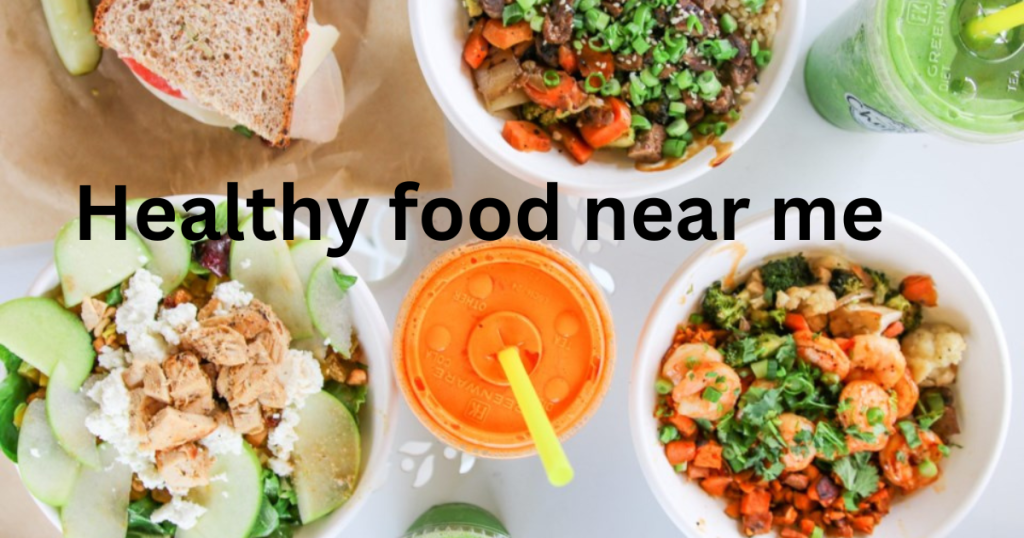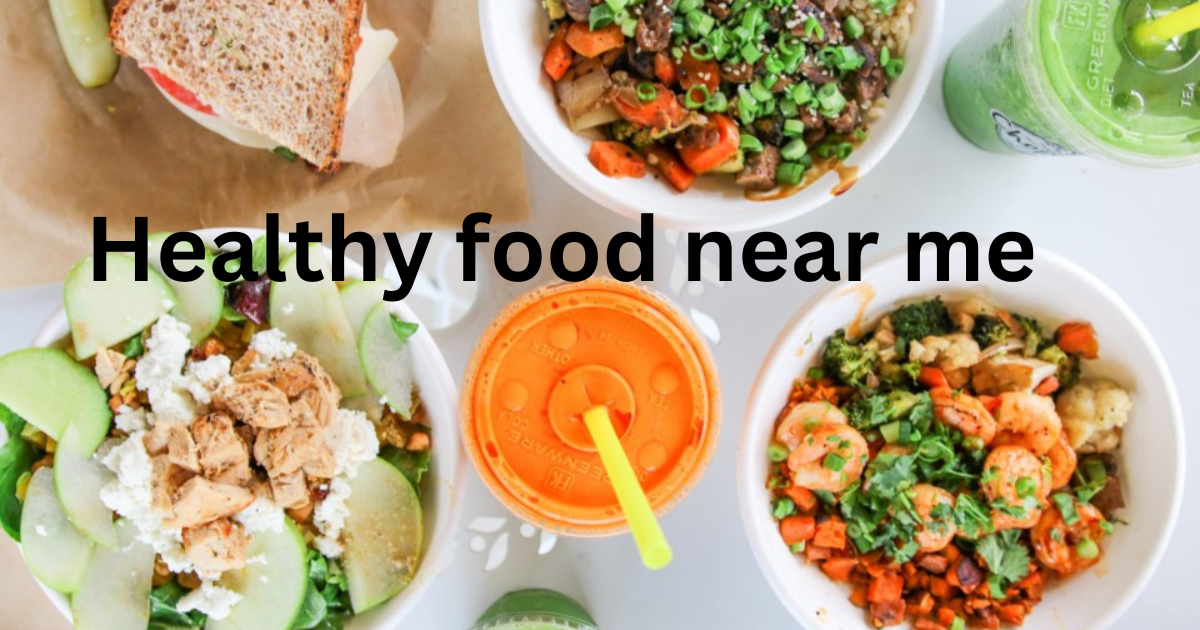Introduction
Making healthy food choices is one of the most impactful decisions you can make for your well-being. A balanced diet not only helps maintain an optimal weight but also enhances overall health, strengthens the immune system, and reduces the risk of chronic diseases. However, with a vast array of food options available, it can sometimes be difficult to differentiate between nutritious and unhealthy choices. In this guide, we will discuss the benefits of healthy eating, the best food options, and practical strategies to maintain a well-rounded diet.

Benefits of Healthy Eating
1. Strengthens the Immune System
A diet rich in fruits, vegetables, and whole grains supplies essential vitamins and minerals that boost immunity, helping the body fight infections and illnesses more effectively.
2. Enhances Heart Health
Choosing nutrient-rich foods such as lean proteins, whole grains, and healthy fats can lower cholesterol levels, regulate blood pressure, and reduce inflammation, thereby minimizing the risk of heart disease.
3. Aids in Weight Management
Opting for nutrient-dense foods instead of processed and high-calorie meals helps in maintaining a healthy weight and reducing the likelihood of obesity-related conditions.
4. Supports Mental Well-being
Certain foods, including fatty fish, nuts, and leafy greens, play a crucial role in enhancing brain function, improving mood, and lowering the risk of depression.
5. Promotes Digestive Health
A diet high in fiber, probiotics, and water supports digestion and helps prevent common digestive problems like constipation and bloating.
Best Healthy Food Choices
1. Fruits and Vegetables
Packed with vitamins, minerals, antioxidants, and fiber, fruits and vegetables are essential for a healthy diet. Eating a variety of colors ensures a broad spectrum of nutrients. Excellent choices include:
- Berries (high in antioxidants)
- Leafy greens like spinach and kale
- Citrus fruits for vitamin C
- Carrots and sweet potatoes for beta-carotene
2. Whole Grains
Whole grains are rich in fiber and nutrients, making them a healthier alternative to refined grains. Some nutritious options include:
- Brown rice
- Quinoa
- Whole wheat bread and pasta
- Oats
3. Lean Proteins
Protein is vital for muscle growth and overall body function. Opt for lean sources such as:
- Chicken breast
- Fish (salmon, tuna, mackerel)
- Eggs
- Plant-based proteins like beans, lentils, and tofu
4. Healthy Fats
Healthy fats are essential for heart and brain health. Incorporate these in moderation:
- Avocados
- Nuts and seeds (almonds, walnuts, chia seeds)
- Olive oil
- Fatty fish
5. Dairy and Dairy Alternatives
Dairy products provide calcium and protein, but plant-based alternatives are also great options for those who are lactose intolerant.
- Greek yogurt
- Low-fat milk
- Almond or soy milk
Tips for Maintaining a Healthy Diet
1. Plan Your Meals
Meal planning helps ensure balanced nutrition and prevents the temptation of unhealthy fast food options.
2. Read Food Labels
Review ingredient lists and nutritional information to avoid hidden sugars, unhealthy fats, and artificial additives.
3. Stay Hydrated
Proper hydration is essential for overall health. Aim to drink at least 8 glasses of water daily and minimize sugary beverages.
4. Practice Mindful Eating
Be conscious of portion sizes and pay attention to hunger cues to avoid overeating.
5. Cook More at Home
Preparing meals at home gives you control over ingredients, portion sizes, and cooking methods, promoting healthier eating habits.
FAQ: Where to Buy Healthy Food Near Me?
1. What are the best places to buy healthy food?
The best places to buy healthy food include local farmers’ markets, organic grocery stores, and supermarkets with a dedicated health food section. Online grocery stores specializing in organic and healthy foods are also a great option.
2. How can I find healthy food stores near me?
Use apps like Google Maps, Yelp, and grocery store locators to find health food stores and supermarkets that offer fresh, organic, and whole food options near you.
3. Are there affordable options for buying healthy food?
Yes! Buying in bulk, shopping at local farmers’ markets, and choosing seasonal produce can help save money while maintaining a healthy diet. Some grocery stores also offer discount sections for fresh produce and whole foods.
4. What should I look for when shopping for healthy food?
When shopping, check for whole foods, organic labels, and items with minimal processing. Focus on fresh produce, lean proteins, whole grains, and healthy fats while avoiding overly processed and high-sugar foods.
5. Can I order healthy food online?
Absolutely! Many grocery stores and specialty health food stores offer online shopping and delivery options. Websites like Amazon Fresh, Thrive Market, and Instacart provide access to a variety of organic and nutritious food options.
Conclusion
Finding healthy food near you is easier than ever with the right tools and knowledge. By making informed choices about where to eat and shop, you can maintain a nutritious diet that supports your overall well-being. Whether dining out, grocery shopping, or ordering online, prioritizing fresh, whole foods will help you achieve a healthier lifestyle. Start exploring your local healthy food options today and take a step towards better health!
